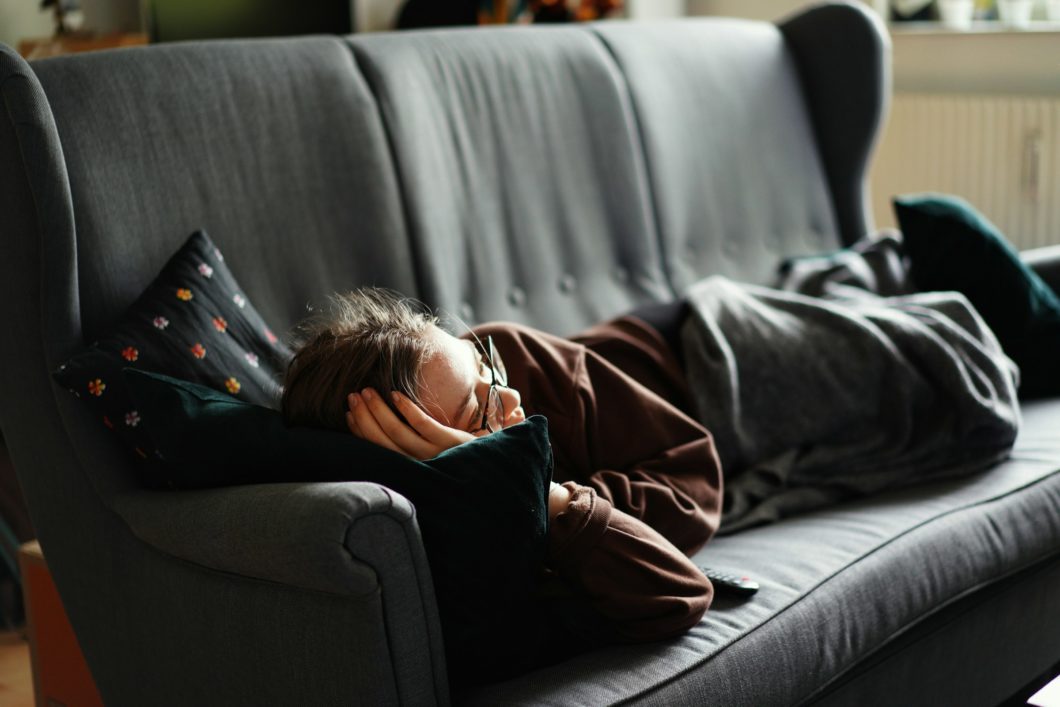In recent years, office workers’ working styles have drastically changed across the UK and beyond. A combination of office and home working is now the new norm, and employers have had to rapidly change to new models, which are still a point of discussion four years on after the pandemic.
It’s hard to challenge the benefits of flexible and hybrid working. The Scientific Journal, Nature, recently conducted a six-month randomised trial to investigate the effects of hybrid home working with 1,612 employees of a Chinese technology company. The trial found that not only does hybrid working improve retention without damaging performance, but this model of working also improved job satisfaction and reduced quit rates by one-third.
Given the numerous advantages of flexible and hybrid working, we embarked on a study to gain a comprehensive understanding of how UK office workers perceive their working week. Our goal was to pinpoint the day of the week when they feel most content and productive in the office, and to identify any major distractions they face while working from home. To achieve this, we interviewed 2,023 full-time office workers aged 18+ in 17 major UK cities. The insights we gathered are invaluable and can provide a deeper understanding of the benefits of flexible and hybrid working.
The happiest day of the week to work from the office
After work socials
The ‘Sunday Scaries’
The state of office lunches
The biggest distractions when working from home
I feel happiest when working from the office on this day of the week:
According to our results, the day the UK office workforce feels happiest when working from the office is a Friday. This is consistent with all age groups and genders we spoke to.
Research shows that happiness is contagious, and even a small number of colleagues who express happiness can spread positivity throughout teams and the organisation. To harness this, managers can encourage working from the office on Fridays and plan team bonding or social activities on this day. Happiness not only boosts morale and productivity but also fosters a sense of community and belonging among team members, boosting productivity by 13%.
We spoke with Dr Sanjay Popat, a Chartered Psychologist specialising in occupational stress, well-being and mental health on the topic of happiness in the workplace:
“The precise ways in which happiness is thought to influence productivity remain an avenue for future research, but it is theorised to be down to three central mechanisms. Firstly, being in a good mood (i.e. being happy) improves our thinking and processing skills, driving higher efficiency, communication, and creativity. Secondly, being happier is likely to lead to greater enjoyment of upcoming tasks, heightening the motivation potential of employees and leading to productivity gains as they are more likely to engage with, and subsequently, complete their tasks. Lastly, a positive mood may well increase social capabilities as people perceive happier employees as more approachable, leading to greater productivity on tasks involving colleagues or customers.”
– Dr Sanjay Popat, Chartered Psychologist
When looking at our results on a location level, office workers in Belfast are happiest when working from the office on a Friday (the highest out of every location). In contrast, office workers in Bristol are happiest when working from the office on a Wednesday.
Our study found that Thursday is the least happy day of the week for office workers. It’s unclear why office workers feel this way, but if you are an employer, it’s well worth considering asking your team to work from the office on specific days and take into account regional differences. For example, for office workers based in London, it’s well documented that Thursdays are one of the busiest for tube journeys.

Dr Sanjay Popat shares his thoughts on how UK employers can foster a happy office culture:
“UK offices should be providing employees with clear and targeted feedback, autonomy in how they carry out their jobs, support from senior staff, opportunities for training, and recognition for employee contributions. If no demands are encountered by employees, these resources should lead to engagement and happiness. If demands are present, then the research shows these resources can buffer the stress experienced. The key, however, is for organisations to focus on sustained happiness through repeated and consistent intervention (one off attempts at improving happiness are unlikely to have much impact!). There is also no “one size fits all” approach and different resources may work for different employees.”
– Dr Sanjay Popat, Chartered Psychologist
We asked respondents which day of the week they would most likely attend an after-work social event. The majority (43.85%) agreed that Fridays are the best day. Again, this finding isn’t entirely surprising, as after-work socials can often lead to later nights, so planning events on a Friday means workers can take advantage of a lie-in at the weekend.

Interestingly, almost a quarter of the office workers we spoke to highlighted that they did not feel like attending an after-work social any day of the week – the second highest opinion after our Friday finding. This finding could show that after-work socials are not as popular as they once were – which correlates with findings from a new report by the Work Foundation, a Lancaster University think tank and the International Alliance for Responsible Drinking. The report suggests that after-work drinks are dying out and questions whether employers should plan social events throughout the working day instead.
When we examined the data on a regional level, we found that 36.21% of office workers in Northern Ireland expressed a lack of interest in after-work socials on any day of the week, the highest percentage among all regions. Gavin Cumiskey, Employment Services Manager at Peninsula Northern Ireland, a professional consultancy firm, sheds light on this finding:
“Businesses in Northern Ireland don’t tend to have the same ‘afterwork culture’ as the rest of the UK due, in large part, to geographical location and a lack of good transport.
Most people don’t live in the cities or close to the cities, so employees must travel to work by car or use other transport. Public transport can also be an issue. For example, certain train links are currently not running due to the opening of a new train station in Belfast, meaning employees don’t have a choice but to drive to work or take buses, adding a significant amount of time onto their journey.
For those who don’t work in the cities, the afterwork culture simply doesn’t exist. Locations may be further away for employees to attend after work events, so they opt out.
After work social events can be a good opportunity to celebrate successes and key achievements. They can also be good for team building. Of course, there is a difference between a work-organised event – such as a Christmas party or summer social – and employees meeting up at the pub after work, but both scenarios can pose risk to employers that need to be managed.
Given that work events can be seen as an extension of the workplace, it is important for employers to ensure that things don’t take a turn for the worst, especially if alcohol is involved. Planning and preparation are key. Make sure that any events are inclusive for all staff members and invite the entire team. The venue should be accessible and the food and drink on offer should cater for all employees, taking into consideration specific dietary needs and religious beliefs.
Employees are still representatives of the business when attending work events so if they behave inappropriately the usual disciplinary procedures will usually apply – this should be communicated in advance of any events organised by the company.”
– Gavin Cumiskey, Employment Services Manager
With a large proportion of the UK workforce now working flexibly, we wanted to understand the biggest motivators for working from the office. The ten most popular reasons include:
Socialising with colleagues is the biggest motivator for UK office workers to work from the office, which has direct benefits to both the personal lives of office workers, and the businesses they work for. Research has shown that by interacting with others, we are training our brains, which can help to improve memory formation and recall, as well as protect us from neurodegenerative diseases.

We touched earlier on how the way of work has changed since the COVID-19 pandemic. As many teams now work flexibly, watercooler moments where colleagues chat organically have become fewer and far between, so managers need to be intentional when creating these interactions. To help you map out your team-building activities, we recommend this comprehensive resource from employee recognition specialist, Workhuman, which lists teambuilding activities for work in 2024.
Getting out of the house came in as the second biggest motivator for working from the office. Given the sedentary nature of desk work, it can often be a challenge to reap the health benefits of leaving the house throughout the day when working from home.
We spoke with Hannah Beecham MBE, the Founder of Red January – a nationwide movement to help people move in the month of January about the topic of leaving the house throughout the day for work:
“The health and wellbeing of employees is one of the most valuable assets a business can have, and with a recent report outlining how getting the nation’s workforce physically active could benefit the UK economy by up to £17bn a year, we believe it’s time for all businesses to introduce movement breaks.
We surveyed 1,438 RED participants to understand the impact being more active had on their mental health and found that almost 80% of participants noticed an improvement in their mental wellbeing as a result of moving regularly throughout January, with over a third (35%) saying that workplace movement breaks were one of the most important changes their employer could make.
This is also supported by our partner Decathlon who introduced movement breaks for all their UK employees during RED January and found that 61% of employees reported that having time in their day to move significantly improved their mental wellbeing.”
– Hannah Beecham, Founder of Red January
There are many other benefits outside of physical exercise that come with leaving the house. We caught up with Neina Sheldon, Founder of Make Light Matter, which provides consultancy and training for employers on the health impacts of light about the positive benefits of leaving the house:
“Exposure to morning daylight is one of the most powerful ways we can help our body align with the time of day and keep our health on track. Getting out of the house to go to a workplace gives us this natural healthy boost, which we may miss if we’re working from home.
For so many of us in the UK, winter months mean a morning commute in the dark. Employees can try bright light therapy and ensure they get outside on a lunch break to help themselves. However, employers can also make a real difference to their team’s wellbeing by offering and encouraging the use of flexibility in start times, or the opportunity to get outside for a daylight break after sunrise.
If getting outside isn’t practical, review the opportunities you provide for people to sit for a while by a window. See what you can improve in your workplace. These simple, inexpensive changes can boost your team’s mood and energy, helping to improve sleep and ward off seasonal affective disorder (SAD) and winter blues. Being flexible has wider benefits too; giving individuals autonomy to meet their needs will help them feel valued and support them to be happy, healthy and productive all year round.”
– Neina Sheldon, Founder of Make Light Matter
Dubbed the ‘Sunday scaries’ or ‘The Sunday Night Blues,’ this phenomenon refers to the feelings of dread, nervousness, or difficulty sleeping that many people experience at the weekend. These feelings are often due to worries about the upcoming working week.
Our study has found that an alarming proportion (over two-fifths) of UK office workers feel anxious at the weekend about the working week ahead. Interestingly, younger millennials (25 – 34-year-olds) reported the highest feelings of anxiety at the weekend, while office workers aged 55+ reported the lowest levels of anxiety. This suggests that different age groups may have different stressors or coping mechanisms, and employers should consider these factors when addressing weekend anxiety.
Ezra Hewing, Head of Mental Health Education at The Mental Health Toolkit, has direct experience in training organisations in how to best understand and support emotionally healthy workplaces. He spoke to us about the effects of anxiety within different age groups:
“Experience and the opportunity to achieve in the workplace develops our skills and competence. This give us the confidence that we can handle workplace challenges, which might be why those office workers aged over 55 reported the lowest levels of anxiety.
Many younger millennials, by comparison, may not yet have the confidence which comes with experience. Giving them positive attention and praise, and opportunities to learn from more experienced mentors are two ways in which employers can support younger employees to overcome anxious feelings about the workplace and thrive.”
– Ezra Hewing, Head of Mental Health Education
100% of both transgender and non-binary office workers we spoke to expressed anxiety for the working week ahead at the weekend. Ezra Hewing discusses how employers can help our transgender and non-binary colleagues:
“That those employees who identify as transgender and non-binary report the highest anxiety about work suggests that there is a lot of progress to be made towards growing workplace cultures where people feel accepted without judgement. Employers may also find that enabling transgender and non-binary employees to access the right support with challenges they may face helps them to feel better about the week ahead.”
– Ezra Hewing, Head of Mental Health Education
On a location level, our study found that office workers in Bristol experience the greatest levels of anxiety at the weekend, whereas office workers in Plymouth reported the lowest levels of anxiety. This suggests that regional factors or work cultures may contribute to weekend anxiety.
A joint study by The University of Exeter, Channel 4 and Investors in People found that emails at the weekend, blurred boundaries and unfinished tasks from the week before all contribute to the ‘Sunday scaries’. The study also found that reports of these feelings intensified over the pandemic, largely due to the blurred lines between home and work life. Interestingly, the same study found that people who love their jobs are also affected by this, so the Sunday blues aren’t just confined to people who are unhappy at work.

To help overcome the Sunday night blues, the University of Exeter suggests that employees should plan activities for Sunday, such as socialising or exercising on a Sunday evening, or talk to a close friend or family member. For managers, the advice includes reshaping Mondays and Fridays; by offering meeting free Monday mornings and Friday afternoons so teams can prepare for the week. Other recommendations include offering support to the team, being approachable and knowing where team members can be referred to for mental health support if needed.
Sally Evans, Managing Director at Making Moves, comments on these findings:
“It’s sad to see that so many office workers express feelings of anxiety at the weekend. As employers, we must create environments where our teams can switch off. My best advice is to lead from the top and show team members that work-life balance isn’t just important; it’s crucial. Encourage your team to switch notifications off at the weekend and be sure to check in with them at the end of the week, reminding them that the weekend is their personal time to enjoy. By creating a culture where team members know they can relax and should relax, without worry for the week ahead, you will pay the business back ten-fold, as team members are happier, more rested and more productive while at work.”
– Sally Evans, Managing Director of Making Moves
While these findings show a need for UK employers to tackle weekend anxieties, our study does show that 54.46% of office workers feel less anxious about the working week ahead if they work from home on a Monday. This suggests that allowing remote work on Mondays could be a beneficial solution. While we didn’t delve further into why this may be the case, this could be a valuable takeaway for managers who feel their teams are experiencing weekend worries.
As Evans highlights, the business case for positive mental health in the workplace is clear. Economic modelling data from AXA and the Centre of Economic and Business Research shows that work-related stress and burnout is costing the UK economy £28bn a year, resulting in 23.3m yearly sick days. The study, of 30,000 people world-wide shows that almost half of the UK are not in a positive state of mental wellbeing and are at risk of burning out. Evans shares further tips on how to best tackle employee burnout:
“In my experience, burnout can stem from various factors and grow over time. Rather than trying to treat the symptoms of burnout, we should try to avoid it, ensuring targets are achievable and teams have access to training that will help them work at the level required. Employers can introduce a variety of initiatives, such as Mental Health First Aiders, which provide regular check-ins with the team. Other activities to support better mental and physical health could include free yoga or judgement-free run clubs, which we have introduced at Making Moves. While there isn’t a one-size-fits-all approach to supporting employees with their mental health, it should be a point of discussion at every board meeting.”
– Sally Evans, Managing Director of Making Moves
The cost -of-living has been a much-discussed topic in the UK over recent years. In our study, we wanted to understand whether UK office workers have felt the impact of rising prices when purchasing their lunch and, if so, how they are tackling this.
64.36% of office workers we spoke to flagged that the price of their lunch has increased due to the cost-of-living crisis, and 67.49% stated they spend more on lunches when working from the office.
To help with rising costs, the majority (64.71%) of office workers said they prefer to meal prep rather than buying lunch daily.
If UK office workers work from the office every day, a whopping 53.88% of those we spoke to said they could not afford to buy lunch daily. More female respondents than male respondents agreed with this statement.
I believe that employees should receive free lunches when working in the office:
We asked whether employees should receive free lunches when working from the office, and 55.17% agreed that this is something employers should offer. Interestingly, a 2022 study found that 81% of business leaders believe offering free meals and snacks is the best way to incentivise workplace attendance. In a poll, 93% of leaders said more employees attend the office when free food is available. So, if you are a leader looking to encourage your team to work from the office more, free food might be the way to go.
Emily Lincoln- Gordon, Fractional COO shares her thoughts on this:
“Offering return-to-office perks like lunch can help boost attendance, but a one-size-fits-all approach rarely works and very few people do this with a strategy in mind. Every company has its own culture, and within that, employees have different needs and priorities. When designing perks to encourage more time in the office, especially something like a lunch program, it’s important to start by having clear agreement on why you want people to spend time together in person and ensuring there’s a real mutual benefit for you and team members. Once you’re confident of that, you can work backward to align your goals with the incentives your team needs, balancing that with what the company can provide in terms of resources.
In my experience, it’s crucial that perks are thoughtful and equitable. For instance, data shows that 66% of younger employees believe companies should provide free lunches. This isn’t Gen Z entitlement—it’s about the real cost-of-living trade-offs we’re asking people to make. Eating at home is cheaper, and affordability increases with seniority and salary. It’s no wonder early-career employees see paying for lunch as a big expense. One way to address this is with a sliding scale lunch subsidy: offering more to those with lower salaries and tapering off as salaries rise. Taking an equitable approach to lunch programs shows your team that you recognise the real costs of coming to the office and are doing what you can to make it manageable.
In a hybrid work world, providing lunch to everyone every day isn’t the most effective use of budget and can lead to waste. Instead, offering company-wide lunches on specific days can encourage in-office collaboration and community-building, while freeing up budget to support more equitable schemes like the sliding scale. I’ve implemented this model successfully in previous roles, balancing the need to foster connection with a commitment to fairness and responsible budget management.”
– Emily Lincoln-Gordon, Fractional COO
What distracts UK workers most when working from home? According to our study, watching TV, followed by deliveries to the house and then running personal errands top the list:

Just 12.41% of the office workers we spoke to flagged that they work fewer hours at home without their company knowing.
Younger millennials (25 – 34-year-olds) are most likely to be distracted by watching TV while working from home. Looking at this finding by gender, male office workers are most likely to be distracted by watching TV whilst working from home.
Which UK city is the most distracted by watching TV while working from home? Office workers based in Liverpool are the most distracted by this, followed by Leeds and Nottingham. Southampton office workers are the least likely to be distracted by watching TV while working from home.

We spoke with an office worker who is an ex-employee of Evelyn Partners, based in Liverpool. This person wished to remain anonymous but admits to watching sports while ‘working’ from home. They clarified that their performance wasn’t affected by watching TV as they only had this on in the background, but it did make them enjoy their job better. We asked this person how to best keep distractions such as watching TV at bay, said:
“I would say the only way not to be distracted would be to create a work zone. I worked from my studio, which has no TV. If I were to work from the couch in the living room, the temptation would be there. Another way not to be distracted would be to go for a walk at lunch. I used to do this every time working from home. It allowed my brain to rest and be away from the computer screen.”
Our study shows that Gen Z are the biggest nappers, with almost a third admitting to snoozing while on the job. Research suggests that this generation prioritises sleep health more than previous generations, and a short afternoon siesta has been proven to increase productivity. To maximise a short nap, we recommend this resource from management and behavioural expert Daniel Pink, who coined the term ‘nappachino’ based on this work.
That said, we recommend team members schedule afternoon naps while taking official breaks, so they don’t run the risk of getting into hot water with their employer.
When we set out to conduct this study, we wanted to understand which day the happiest day of the week is to work from the office. While we have identified that UK office workers feel most happy when working from the office on a Friday, our report has identified further insights into the trends of UK office workers.
Our study shows that employers need to be aware that a large proportion of UK office workers are expressing feelings of anxiety at the weekend for the working week ahead, which is especially prevalent in transgender and non-binary respondents we spoke to.
We also found that after-work socials aren’t as popular as they once were, suggesting that employers should consider different methods for team socials.
We found that after-work socials aren’t as popular as they once were, which is especially prevalent for office workers based in Northern Ireland due to inadequate public transport links. Financial pressures and the cost of living could also play a role here, as seen in our findings on office lunches, with many office workers believing that employers should provide free lunches.
Finally, our study found that office workers are most distracted by watching TV while working from home, and Gen Z employees are most likely to nap on the job.
At Making Moves, we believe the right office can supercharge your team’s culture and productivity. So, whether you are looking for advice on implementing successful hybrid working models or searching for your perfect office, our specialist advisors are here to help.
Making Moves commissioned Censuswide to carry out the research for this study, which was conducted with 2,023 full-time UK office workers aged 18+ between 17/07/24 and 22/07/24. Censuswide abide by and employ members of the Market Research Society which is based on the ESOMAR principles and are members of The British Polling Council. You can access the full dataset here: Making Moves, The Happiest Day of the Week Office Survey.
DISCLAIMER: Dr Sanjay Popat has not been involved in the design or development of the study, nor in the analysis or interpretation of the findings. He has been asked to provide comment on some of the study’s results outlined to him, in context of his knowledge on workplace well-being.
Josie Middleton
Digital PR & Content Director
Josie.middleton@bondedagency.com
07539797511